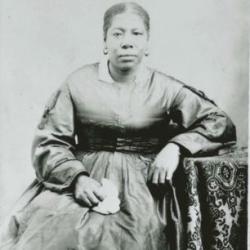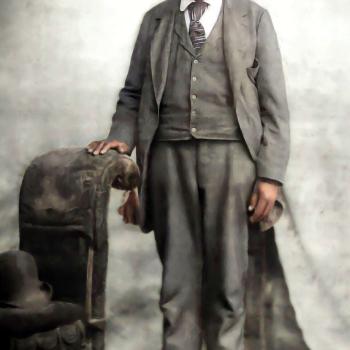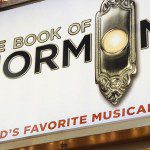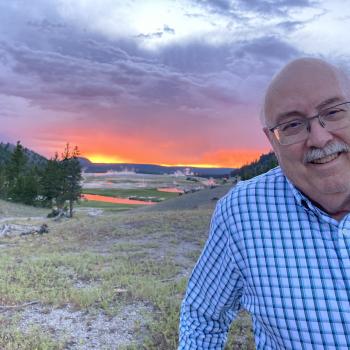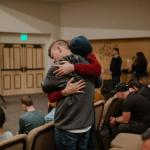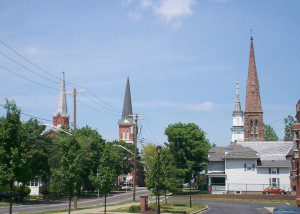
(Wikimedia CC; click to enlarge.)
Yesterday, I cited the testimony of a “Mrs. Palmer,” who knew Joseph Smith in Palmyra.
Others agreed with Mrs. Palmer in their judgments about Joseph’s character. “I knew all of the Smith family well,” said the non-Mormon Orlando Saunders. “They have all worked for me many a day. They were very good people. Young Joe (as we called him then) has worked for me, and he was a good worker; they all were.”[1] “My father,” recalled Joseph Knight, Jr., “said that Joseph was the best hand he ever hired.”[2] Thomas H. Taylor recalled the Smith men as “nice.”[3] “Oh, how many hours I have spent with these good old folks,” Wandle Mace said of the Smith family as a whole. “They were as honest and true as it was possible for mortals to be.”[4] Stephen Mack, of Tunbridge, Vermont, was Lucy Mack Smith’s considerably older brother. Owing to their mother’s serious illness during their father’s lengthy absence in Nova Scotia, Stephen was partially responsible for her raising. His verdict regarding the generation of Smiths into which his sister married was that they were “worthy, respectable, amiable and intelligent.”[5] Apparently others agreed. Asael Smith, Lucy’s father-in-law and Joseph Jr.’s grandfather, had earlier served for a time as the elected town clerk of Windham, New Hampshire.[6] Indirect confirmation of the solid basic goodness of at least some members of the Smith family appears in the fact that Lucy, the mother, and her two sons Hyrum and Samuel retained their membership in the Western Presbyterian Church until the spring of 1830. At that period, excommunications were quite common in most of the region’s churches, specifically including the Presbyterian church at Palmyra, for such things as gambling, immorality, drunkenness, profanity, and lying. Yet even when the Smiths were finally dismissed from Presbyterian fellowship in 1830, the stated reasons for that dismissal were merely that they had been absent from church services for the previous eighteen months and, moreover, had declared their lack of interest in remaining Presbyterians.[7] Orlando Saunders said of the Smith family that “I always thought them honest. They were owing me some money when they left here. One of them came back in about a year and paid me.”[8]
[1] Andrus and Andrus, They Knew the Prophet, 2; compare Anderson, “The Reliability of the Early History of Lucy and Joseph Smith,” 24. Saunders made essentially the same comment to the non-Mormon interviewer Frederic G. Mather. See Anderson, Investigating the Book of Mormon Witnesses, 144. Madge Harris Tuckett and Belle Harris Wilson, The Martin Harris Story (Provo: Vintage Books, 1983), 16, says that Martin had similar recollections of Joseph Smith as a hard worker, but does not give a source.
[2] Andrus and Andrus, They Knew the Prophet, 5.
[3] Andrus and Andrus, They Knew the Prophet, 3.
[4] Andrus and Andrus, They Knew the Prophet, 131. Although her verdict can obviously be dismissed as biased, Lucy Mack Smith describes her son Hyrum, Joseph’s older brother, as “rather remarkable for his tenderness and sympathy” and as “a good, trusty boy.” She tells a convincing story that seems to bear out her description of him, and there seems no particular reason to dispute her judgment. See Lucy’s Book, 305.
[5] Cited by Remini, Joseph Smith, 15.
[6] Remini, Joseph Smith, 12.
[7] The relevant passages from the “Records of the Session of the Presbyterian Church in Palmyra” (under the dates of 10 March and 29 March 1830) are conveniently reproduced at Backman, Joseph Smith’s First Vision, 182-183; compare Backman’s discussion on page 120.
[8] Andrus and Andrus, They Knew the Prophet, 2.
Posted from New York City



